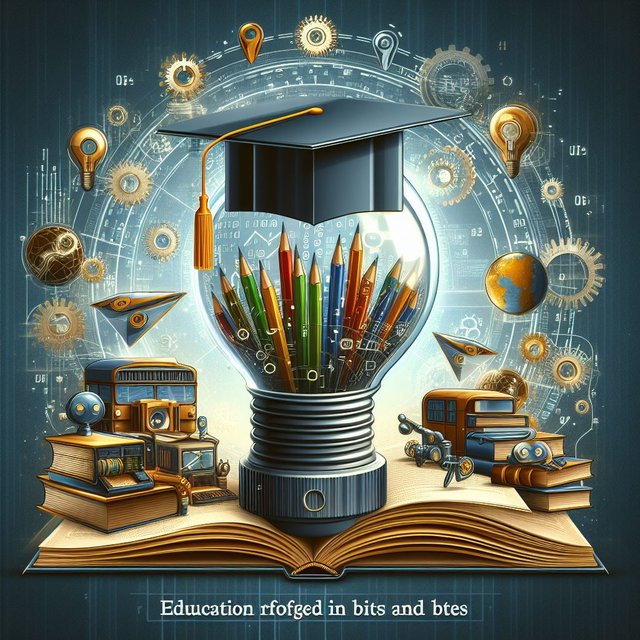The internet, once a flickering novelty, has woven itself into the very fabric of our lives. Its influence extends far beyond mere communication, reshaping everything from commerce to entertainment. And now, it stands poised to revolutionize the very foundation of human progress: education.
Democratization of Knowledge:
Traditionally, knowledge was a carefully guarded treasure, locked away in libraries and classrooms. The internet has blown open these doors, offering a smorgasbord of information that is no longer restricted by geographical boundaries or financial constraints. Millions now have access to educational resources that were once unimaginable, from interactive textbooks and video lectures to virtual tours of faraway museums and live discussions with experts from around the globe.
Personalized Learning:
The traditional "one-size-fits-all" approach to education is being challenged by the internet's ability to tailor learning experiences to individual needs and preferences. Learning platforms powered by artificial intelligence can adapt to a student's pace, strengths, and interests, crafting curriculum paths that are engaging and effective. Imagine a world where students learn mathematics through interactive games or delve into historical periods through immersive simulations, all at their own pace and in a way that ignites their curiosity.
Beyond the Classroom Walls:
The internet transcends the physical limitations of traditional classrooms. Virtual learning communities create opportunities for collaboration and knowledge sharing across continents. Language barriers crumble as translation tools facilitate cross-cultural dialogue and understanding. Students can participate in international projects, engage in virtual internships, and learn from diverse perspectives, cultivating a global mindset that prepares them for an interconnected world.
Shifting Roles:
The internet redefines the roles of both teachers and learners. Teachers become facilitators and mentors, guiding students through the vast information landscape and helping them develop critical thinking and information literacy skills. Learners become active participants in their own education, empowered to take ownership of their learning journey and explore their interests beyond the prescribed curriculum.
Challenges and Concerns:
This educational revolution, however, is not without its challenges. The digital divide remains a stark reality, with millions still lacking access to the internet and technology. Concerns about information overload, digital distractions, and the potential for online misinformation loom large. Ensuring equitable access, fostering responsible digital citizenship, and curating reliable sources of information are crucial tasks that must be addressed.
The Future of Learning:
Despite the challenges, the internet's transformative impact on education is undeniable. We are witnessing the birth of a new paradigm, one where learning is no longer confined to classrooms but unfolds anywhere, anytime, and in ways that are endlessly adaptable and engaging. This is not about replacing teachers or schools, but about empowering them with new tools and approaches to create personalized, lifelong learning experiences for all.
The journey ahead is filled with both possibilities and pitfalls. Yet, one thing is certain: the internet has ignited a revolution in education, and its ripple effects will be felt for generations to come. Embrace the possibilities, navigate the challenges, and join the movement to redefine education for a brighter, more informed future.
This is just a starting point. The article can be expanded to include specific examples of innovative online learning platforms, case studies of successful technology-driven educational initiatives, and discussions on the ethical and social implications of the internet in education. You can also delve deeper into specific areas of disruption, such as the future of vocational training or the rise of alternative credentialing systems. Remember, the key is to paint a vivid picture of the evolving landscape of education in the digital age, highlighting both its transformative potential and the challenges that need to be addressed.
